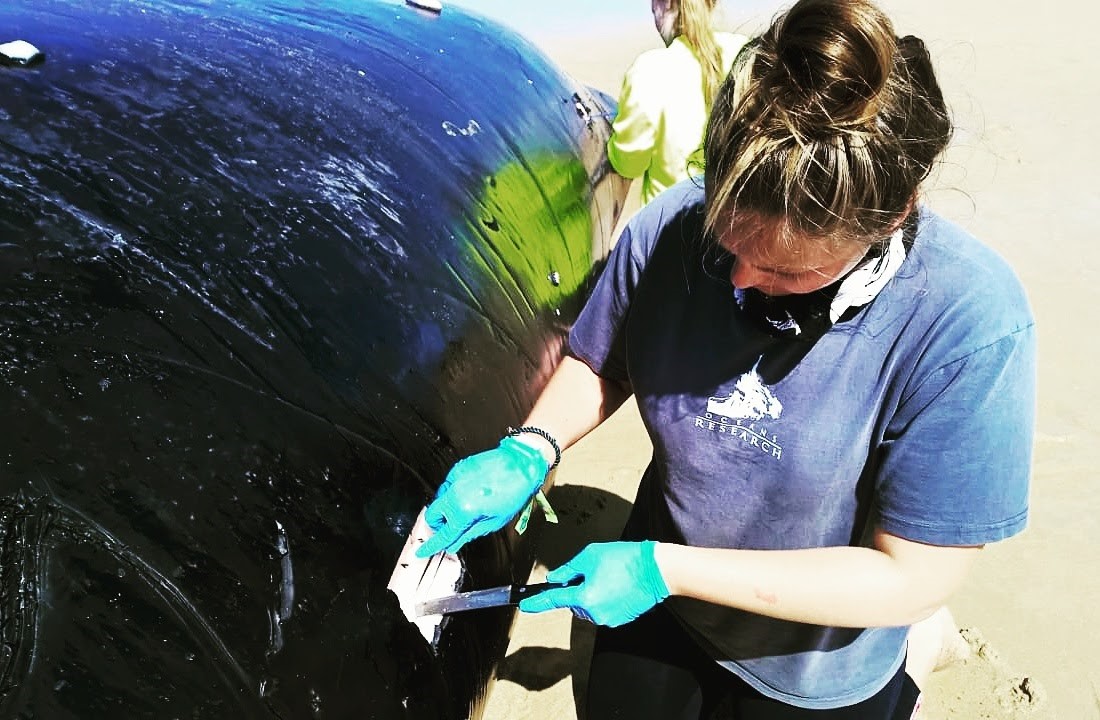
Interview with Sasha Dines on the Recent Beaching of a Brydes Whale
Posted by Esther Jacobs on April 14, 2018
Oceans Research staff are trained to respond to marine mammal strandings... training that is extended to our interns. We also respond to marine mammal beachings to try to get an understanding of the cause of death. Recently, a whale washed up on a nearby beach, so we interviewed our Head Field Specialist, Sasha Dines, to find out more about what happened.
When did Oceans Research first hear about the whale carcass and where was it?
We first heard about the whale over the Easter weekend from the NSRI it was still floating in the bay. It was Easter Sunday that the whale actually washed up on Glentana Beach.
How did you respond to the report?
On the Sunday we assessed the situation, identified the species and saw the condition of the carcass. Once it was confirmed we were dealing with a Brydes whale, one of the rarer inshore species, we contacted a colleague, Dr Gwen Penry, in Plettenberg Bay, who specialises in this species.
What information did you collect on the whale?
Unfortunately, Gwen wasn’t able to make it to Mossel Bay the next day, so she asked us to take some data for her. On Monday, with the help of our students and SMART, we collected photos, measurements and samples. The data has been sent to the DEA and relevant scientific groups.
From all indications this was a healthy, adult male Brydes whale who, at nearly 14m in length, will have been roughly 30 years old.
What was interesting about this whale however were the clear rope lesions across the throat grooves, indicating that at some point in the whales life it was entangled quite severely in fishing gear.
Why are you interested in a whale that could not be saved?
Every whale matters, dead or alive. These animals are incredibly rare and events such as this offer a uniquely valuable opportunity to study these animals. Even basic data can provide a lot of information. I could go on for a very long time about how important these events are to our understanding of them.
However, in this event the added interest was the evidence of entanglement and this is something that Gwen’s research is focused on in Plett.
Any indication of cause of death?
With these situations where the whale comes to the beach already dead it is rare we will find out the definitive cause of death. However here the whale was a healthy adult from all indications and the entanglement scars are severe enough to perhaps be a contributor to death. If fishing gear was the cause of death for this poor animal then it’s an incredibly sad story as it was entirely preventable.
Any outcomes you would like to see come out of this sad death?
At present there’s a sweeping ‘Blue Planet’ cultural change happening in our society. Single use plastics are being ditched for more eco- friendly alternatives. Yet events such as this show we are still a long way away from protecting our marine life. I would like to see a larger effort in our local community to tackle marine debris and ghost fishing gear.